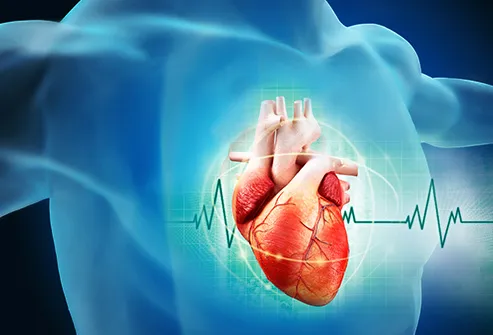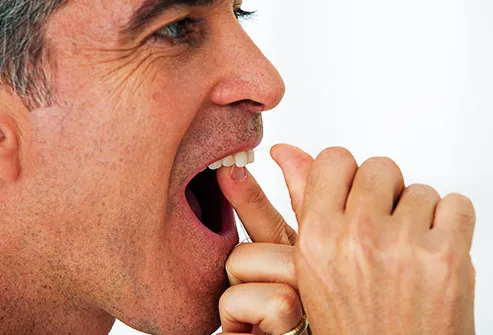Items filtered by date: January 2017
Surprising Things That Hurt Your Heart

Get the Heart Facts
You know that a bad diet and too little exercise can hurt your ticker. But there are lots of sneaky sources of heart disease that you may not be aware of. Here are some you need to know about, and heart-smart steps to help you keep healthy.

Dental problems
Need extra motivation to brush and floss every day? People with gum disease are more likely to have heart disease, too. The connection isn’t clear, but some experts think bacteria from your gums may move into your bloodstream, leading to inflammation of the blood vessels and other heart problems. See your dentist every 6 months for checkups. Make an appointment right away if you spot redness or soreness on your gums or changes in your teeth.

Shift Work
Working at night or irregular hours raises your risk of a heart attack, according to a recent study from Western University in Canada. Researchers say shift work has a bad impact on the body's circadian rhythm (a.k.a. your "internal clock"), and they think that harms your heart. So if you don't work regular day hours, take extra steps to lower your risk of heart disease: Get exercise, eat a balanced diet, and see your doctor for regular checkups.

Traffic Delays
Anyone who’s ever been stuck in bumper-to-bumper traffic will tell you it's stressful. That may be why research links spending a single hour in traffic to higher odds of having a heart attack. High noise levels -- like the kind you hear on a freeway -- are also linked to heart disease. If you can’t avoid traveling during rush hour, squash stress by listening to relaxing music. Or share the ride and chat with your fellow passenger.

Early Menopause
If you’re a woman and you go into menopause before you turn 46, your odds of having a heart attack or stroke may be twice as high as those who go through it later. A drop in estrogen, a hormone with ticker-friendly effects, may play a role. Ask your doctor to test you for heart disease risk factors (like high cholesterol).

Snoring
If your partner says you regularly snore or you sound like you’re gasping for air while sleeping, see your doctor. You might have a serious condition called apnea. It can happen when your airway is partially blocked and it causes you to have pauses in your breathing. The disorder is linked to high blood pressure, an irregular heartbeat, strokes, and heart failure. Treatments can help you breathe easier and lower your risk for heart disease, too.

Hepatitis C
If you have this liver infection, you’re more likely to have low cholesterol and low blood pressure than people who don't have the disease. But even so, you still have a higher risk of heart disease. Researchers think hep C may cause inflammation of the body’s cells and tissues, including those in the heart. Work closely with your doctor to keep tabs on any heart symptoms.

Not Getting Good Sleep
When you routinely get less than 6 hours of shut-eye a night, you raise your risk of higher blood pressure and cholesterol. It increases the odds you’ll become obese and get diabetes, too (both of which can hurt your heart). That doesn’t mean you should sleep your way through the day. When you spend more than 9 hours horizontal on a regular basis, it raises your odds of getting diabetes and having a stroke -- major risk factors for heart disease. Baby your brain, body, and heart -- aim for 7 to 9 hours of slumber a night.

An Unhappy Marriage
A good match makes your heart happy and healthy. Older adults who are content in their unions have a lower risk of heart disease than those who aren’t, according to a recent study from Michigan State University. The likely cause? Stress. When you’re stressed, you’re more likely to make bad diet choices and do other things that can hurt your ticker, like drink too much alcohol. What’s more, stress hormones may have a negative effect on the heart. So consider seeing a couples’ therapist or clergy member together if your marriage isn't a happy one.

Loneliness
When you spend time with loved ones, it thwarts stress and helps you stay active. Lonely folks may be more likely to have heart disease. If you’re not near family or close friends, get connected by helping someone in need, or adopt a dog or cat. Volunteers and dog owners might enjoy better heart health and live longer, too.

Belly Fat
Any extra weight is hard on your heart, but the kind around your midsection is especially dangerous. It may trigger your body to make hormones and other chemicals that can raise blood pressure and have a bad effect on your blood vessels and cholesterol levels. If you’re a woman and your waist is more than 35 inches around, or 40 inches if you’re a man, talk to your doctor about a diet and exercise plan. Research shows that yoga and short bursts of high-intensity exercise are great ways to whittle your middle.

Too Much Tube Time
Couch potatoes, stand up! People who park themselves in front of the television a lot are more likely to get heart problems than those who limit their TV time. Every hour you spend watching TV on a daily basis may increase your risk by almost 20%. Sitting is the most likely culprit; it’s linked to problems like high blood pressure. Until researchers know how and why TV and heart trouble are connected, try to limit your time in front of the tube.

Too Much Exercise All at Once
Exercise is great for your heart. But if you’re out of shape or only work out occasionally, start slowly and build your endurance. When you exercise too long or too hard, it may put you at risk for heart attack and other problems, research shows. Not sure what’s safe for you? Start with a gentle exercise like walking. If you have a high risk of heart disease, talk to your doctor, and consider using a heart monitor while working out.
Taken from WebMD
Anger management
Mental Health and Anger Management
Anger is a very powerful emotion that can stem from feelings of frustration, hurt, annoyance, or disappointment. It is a normal human emotion that can range from slight irritation to strong rage.
Anger can be harmful or helpful, depending upon how it is expressed. Knowing how to recognize and express anger in appropriate ways can help people to reach goals, handle emergencies, and solve problems. However, problems can occur if people fail to recognize and understand their anger.
What Are the Dangers of Suppressed Anger?
Suppressed, unexpressed anger can be an underlying cause of anxiety and depression. Anger that is not appropriately expressed can disrupt relationships, affect thinking and behavior patterns, and create a variety of physical problems. Chronic (long-term) anger has been linked to health issues such as high blood pressure, heart problems, headaches, skin disorders, and digestive problems. In addition, poorly managed anger can be linked to problems such as alcohol and substance abuse, crime, emotional and physical abuse, and other violent behavior.
What Steps Can I Take to Help Manage My Anger?
- When you start feeling angry, try deep breathing, positive self-talk, or stopping your angry thoughts. Breathe deeply from your diaphragm. Slowly repeat a calm word or phrase such as "relax" or "take it easy." Repeat it to yourself while breathing deeply until the anger subsides.
- Avoid alcohol or illicit drugs that can make you more likely to act on angry feelings impulsively.
- Although expressing anger is better than keeping it in, anger should be expressed in an appropriate way. Frequent outbursts of anger are often counterproductive and cause problems in relationships with others. Anger outbursts are also stressful to your nervous and cardiovascular systems and can make health problems worse. Learning how to use assertiveness is the healthy way to express your feelings, needs, and preferences. Being assertive can be used in place of using anger in these situations.
- Seek out the support of others. Talk through your feelings and try to work on changing your behaviors.
- If you have trouble realizing when you are having angry thoughts, keep a log of when you feel angry and try to find the triggers.
- Try to gain a different perspective by putting yourself in another's place.
- Learn how to laugh at yourself and see humor in situations.
- Practice good listening skills. Listening can help improve communication and can facilitate trusting feelings between people. This trust can help you deal with potentially hostile emotions.
- Learn to assert yourself, expressing your feelings calmly and directly without becoming defensive, hostile, or emotionally charged. Consult self-help books on assertiveness or seek help from a professional therapist to learn how to use assertiveness and anger management skills.
What Else Can I Do to Deal With My Anger in a Healthy Way?
If you believe that your anger is out of control and is having a negative effect on your life and relationships, seek the help of a mental health professional. A psychologist or other licensed mental health professional can work with you to better understand the causes behind anger and develop techniques for changing your thinking and your behavior. A professional can help you to deal with your anger in an appropriate way. Choose your therapist carefully and make sure to seek treatment from a professional who is trained to teach anger management and assertiveness skills.















